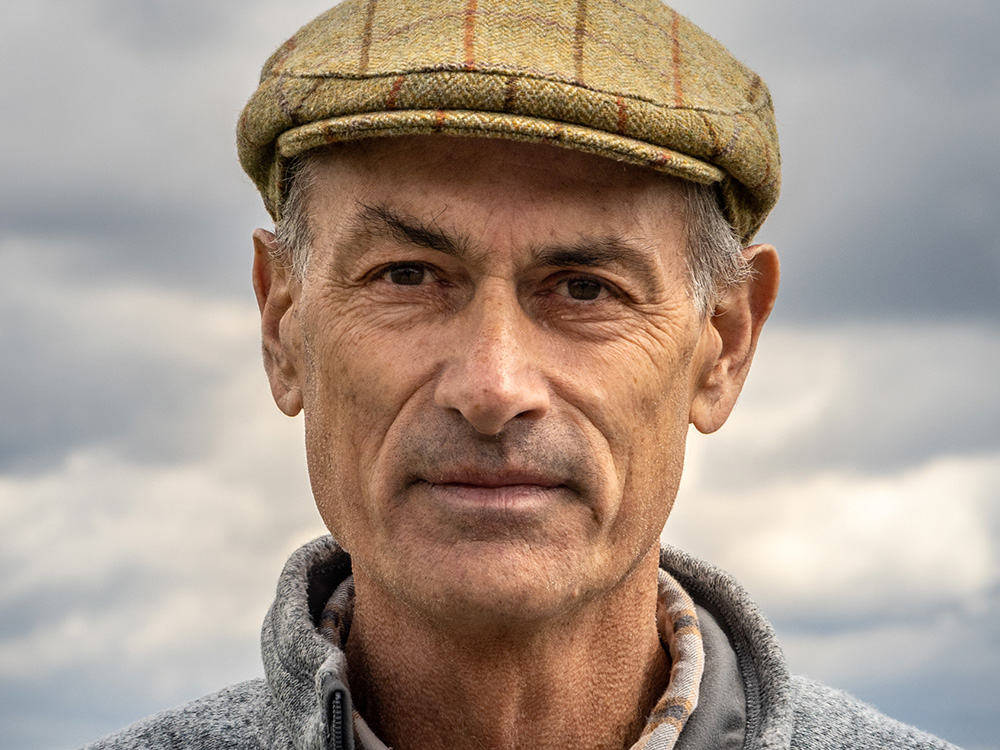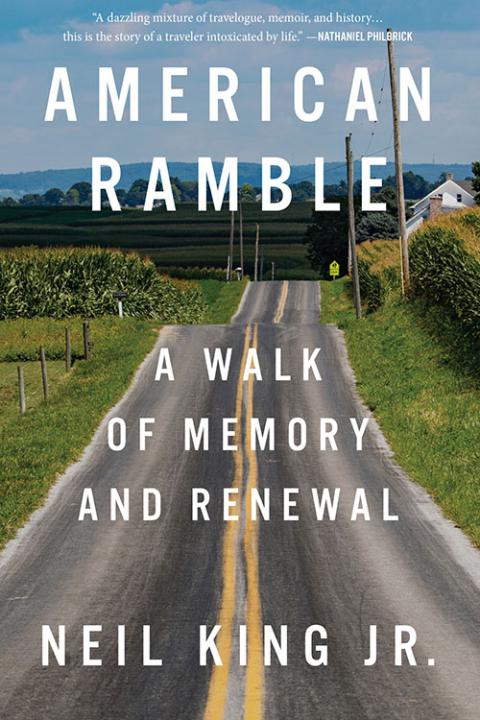
Neil King Jr. (Jeff McGuiness)
The awful news arrived via text just minutes before Sister Annie walked into my spartan new office on the second floor of the nearly 125-year-old brick building, home to the National Catholic Reporter.
For decades, Sr. Annie Loendorf, a member of the order of the Sisters of Charity of Leavenworth (Kansas), has volunteered to call new subscribers and donors to thank them personally. She also is an inspiration for the NCR staff and our muse, our spiritual adviser, our unofficial chaplain. Though we had just met in my first week on the job, Sister Annie arrived unannounced and unsurprisingly at the moment I needed to hear from her most.
The spirit moves through Sister Annie.
She appeared just after the grim news pinged into my phone, copied and pasted from the daughters of Neil King Jr., a well-traveled author and pillar of our Capitol Hill community in Washington, D.C. "Our dad Neil died yesterday afternoon [Sept. 17] after a long, hard-fought battle with cancer," wrote Frances and Lillian King, his grown daughters. He was 65.
Over a quarter century, Neil's storied path crossed with mine in our Capitol Hill neighborhood — at St. Peter's Catholic Church, where he was cherished as a lector who typically delivered Old Testament readings in an authoritative baritone; on brick sidewalks of Capitol Hill and through historic Lincoln Park, walking his Airedale terrier; on rental bikes and scooters as we independently zipped to ballgames at Nationals Park; or in the halls of the Washington bureau of The Wall Street Journal.
Advertisement
His friends, neighbors, colleagues, fellow parishioners and I watched as Neil heroically survived two bouts with esophageal cancer, chemo, radiation and surgery. "The odds of being around a few years hence gyrated from absurdly low to tolerably decent, then back again when I had a recurrence," he wrote in a memoir, one made possible only when his cancer went into remission and a pandemic subsided.
Remission was good fortune. An avid poker player, Neil knew he was playing with house money. He didn't waste it.
In 2021, he embarked on a 26-day, 330-mile walk from Washington, D.C., to New York City, resulting in a remarkable travelog he called American Ramble: A Walk of Memory and Renewal.
It is a beautiful memoir, set in a founding swath of the Northeast U.S. that took him from the District of Columbia, to Maryland, Pennsylvania, New Jersey and New York. He encountered stories of our founding — U.S. history, told through memory keepers he met along the way. "The serendipity was the magic," Neil told "CBS Sunday Morning," "and I met so many great people I almost felt were put there by some higher power to interact with me."
On Easter Sunday, a Pennsylvania man whisked Neil in a boat on the Susquehanna River to an island to view petroglyphs depicting messages more than 1,000 years old, etched in stone, seemingly permanently, never to pass away.
What would become of Neil's words now that he was gone, I wondered the day I got the news.
That's when Sister Annie popped into the office. She wanted to welcome me to the scrappy but lovable 60-year-old nonprofit news organization with a poem. She read from a book of spiritual writings, Spirit Wheel: Meditations from an Indigenous Elder by Steven Charleston. Here's an excerpt:
My words will not last,
No matter how wise they seem
For time will dust them away,
In its endless task of cleaning. ...Words will one day pass
But the love we release into creation will never be lost
For through it we are drawn to its source
A place more wondrous than any word will ever convey.
It was natural to make a connection to news of the death of Neil, a talented wordsmith. It was as if she was dispatched by a higher power. The message of the poem was that Neil's book might fade over the decades, that the pages recede from view, that the words one day will pass. But the love we release into creation remains, as Neil's love is deep in the heart of his family and friends.
"We love our dad to the moon and back an infinite amount of times," his daughters wrote in that sorrowful missive. "He will be missed always and in every moment."
In American Ramble, Neil grapples with and ultimately embraces the sorrow that came with his cancer diagnosis.
"Sorrow, I learned, is the shadow of love," Neil wrote, "because what is sorrow but the fear and pain of losing what you love."









